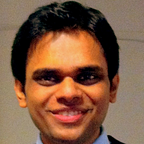Learnings from Statistical Thermodynamics MOOC: Part 1: Time delay between successive homework attempts
I’ll try to distill some insights we were able to glean from the data from the first offering of our MOOC. We are offering the course again and it starts on Monday, April 25. Please share with those that might be interested.
In a series of posts, I’ll share what we learnt from the data from last year. One thing at the outset: it is quite incredible the quality and granularity of the data that we can get on learners’ learning behaviors.
The course consisted of 5 homeworks and the “final exam” consisted of essentially, the “hardest” questions from the 5 homeworks and a couple of additional questions.
Homework format:
* We allowed students to attempt the homework unlimited number of times.
* At the end of each attempt, they were only told a total score. They didn’t know which questions they got right or wrong.
The average number of attempts for most homeworks ranged between 7–10. It was great to see that students persisted. A natural question arose of the time delay between successive attempts, i.e. Did learners use some time to absorb and revisit the content before attempting or try to attempt immediately?
A good fraction of the learners attempted immediately, i.e. a delay of less than a minute between successive attempts of the homework.
However, a noticeable trend was that as the homeworks got harder, this distribution was shifting further to the right.
For example, in homework 1, the fraction of students that attempted within a minute was about ~55%. This went down to about 35% in Homework 2, down to ~25% in Homework 3 and so on. In fact, the overall distribution itself shifted as seen from the data.
All homeworks were constructed such that guessing could only get you so far. There were always a couple of questions that required actual numeric answers.
Next post: I’ll discuss about whether there were any trends between engagement in the forums and how well people did in the course.
